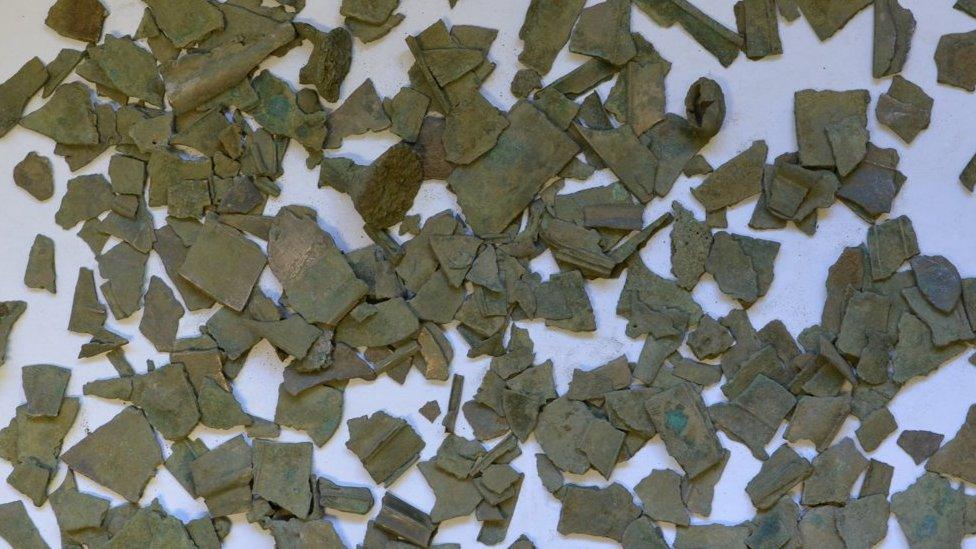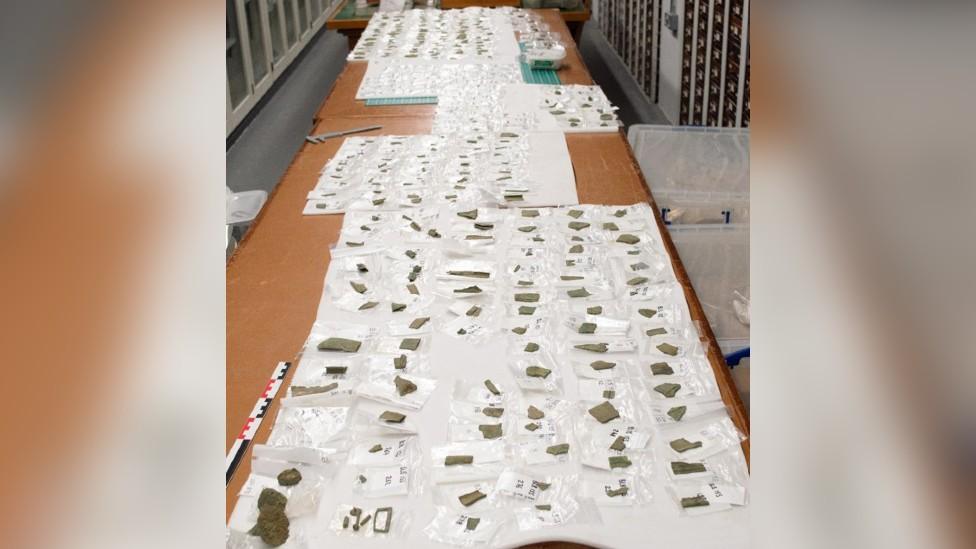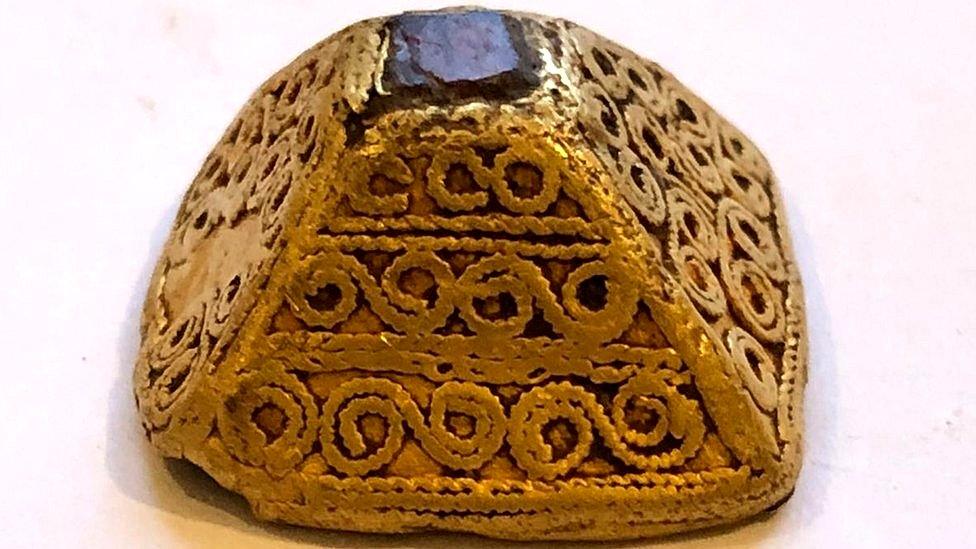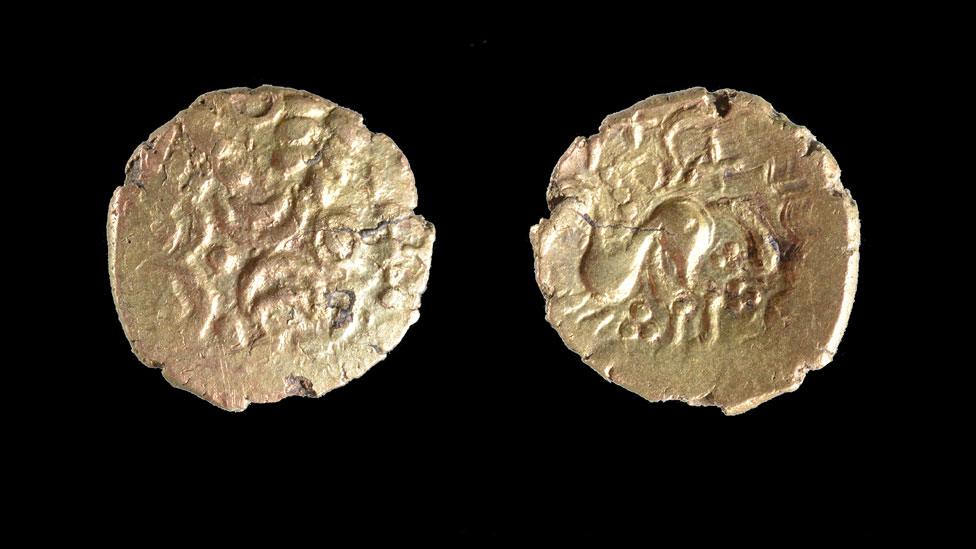Late Bronze Age Blythburgh hoard is declared treasure
- Published

Hundreds of metalworking fragments were found together with pieces of pottery
A Late Bronze Age hoard including sword and spear fragments has been declared treasure despite having none of "the stereotypical 'shiny gold' things we usually see in the news".
The pieces were found by a detectorist in a field at Blythburgh in Suffolk in March 2019 and are more than 2,000 years old.
Fragments of "metalworking debris" and pieces of pottery were found together.
Finds liaison officer Anna Booth said it was of "great archaeological value".
Ms Booth, from Suffolk County Council, said: "The find is interesting because it is quite a big group, contains material of middle to late Bronze Age date, and unlike most Bronze Age hoards it doesn't contain axes and spearheads, but rather bits of swords and the chapes [protectors] from sword scabbards."
In his report to the coroner, Dr Edward Caswell, the finds officer for Oxfordshire, said: "The objects were found in close proximity and are associated, therefore representing a single find all of which appears to have been deposited in the Late Bronze [Age].
"As such this represents a collection of more than two base metal (non-precious) objects of prehistoric date and consequently qualifies as treasure under the stipulations of the Treasure Act 1996 (Designation Order 2002)."
The hoard, which has not yet been valued and dates from 1050-800BC, contains more than 300 fragments of what Dr Caswell described as "metal working debris".

The hundreds of items were carefully examined and catalogued
Ms Booth said: "Although it doesn't fit the stereotype of 'treasure', it still has great archaeological value.
"Bronze Age hoards are frequently reported under the Treasure Act and this is helping us to develop a much deeper understanding of when, where and why they were deposited.
"For a long time archaeologists thought they were just groups of scrap metal hidden for recycling, but we are starting to see patterns in the ways they were deposited suggesting there may be deeper, ritual things going on too."
The hoard was "a great example of how the most interesting material isn't always the stereotypical 'shiny gold' things we usually see in the news", Ms Booth said.
She said Halesworth Museum was hoping to acquire the hoard to add to its collections.
"It has already acquired an big gold Iron Age coin hoard from this area and this will be a nice addition to their growing collection of prehistoric material if they are able to proceed with the acquisition," she said.

Find BBC News: East of England on Facebook, external, Instagram, external and Twitter, external. If you have a story suggestion email eastofenglandnews@bbc.co.uk, external
Related topics
- Published6 March 2023

- Published21 May 2022

- Published9 February 2020
